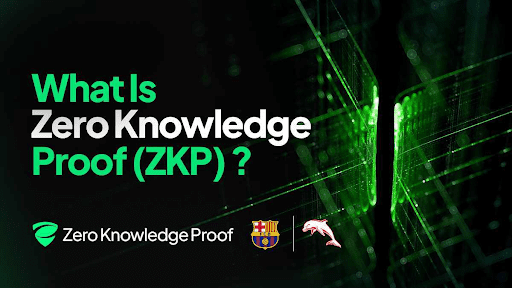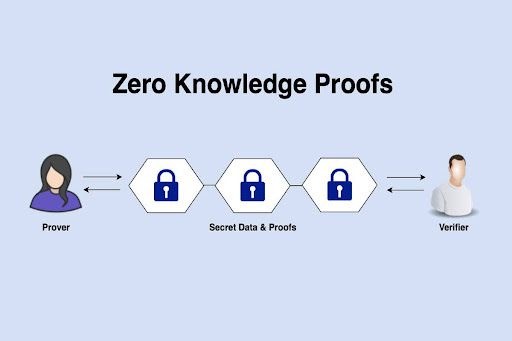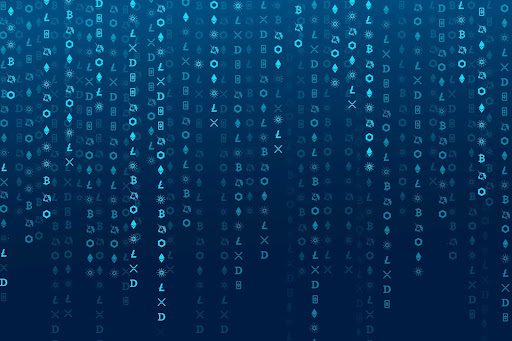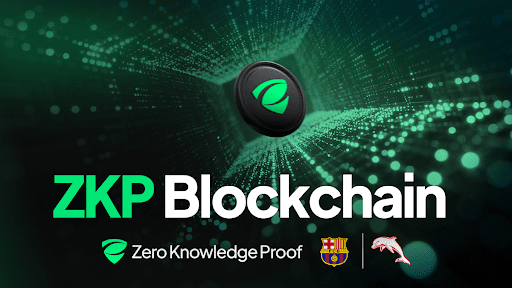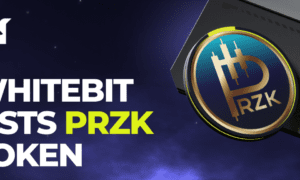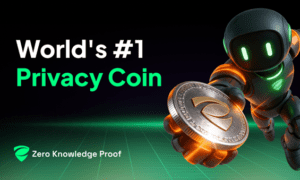Zero Knowledge Proof is creating a blockchain network built specifically for private and verifiable AI computation, and it enters the market with its key systems already active. The compute hardware is fully manufactured, the network infrastructure is running, and the presale auction updates in real time as contributions come in.
With everything operational from the start, Zero Knowledge Proof sets itself up as more than a basic privacy tool. It functions as a full AI infrastructure layer where private computation, protected data, and verifiable results form the foundation of the entire system. With the network now live, it can already process real workloads.
This breakdown covers what Zero Knowledge Proof is designed to build, how it handles AI work, how it verifies accuracy without revealing data, how it protects datasets, and the direction it plans to move in over the next several years.
1. A Blockchain Designed for AI Instead of Simple Transactions
Most blockchains are good at transferring tokens, running contracts, and keeping records. But they are not designed to evaluate whether an AI model was trained correctly, check if data was handled safely, or confirm if a result is trustworthy.
Zero Knowledge Proof begins from the idea that decentralized AI requires a network that can verify results without exposing private information.
It uses a four-layer architecture built on Substrate:
Consensus Layer: Instead of rewarding mining or simple staking, the network rewards useful computation through Proof of Intelligence and reliable storage through Proof of Space.
Execution Layer: Smart contracts run in EVM for developer familiarity, while AI workloads run in WASM for speed and parallel performance.
Storage Layer: Small fingerprints of data stay on-chain, while large datasets live on IPFS and Filecoin.
Security Layer: Zero-knowledge proofs, homomorphic encryption, and multi-party computation protect every step.
Together, these elements turn Zero Knowledge Proof into a decentralized AI operating system where nodes secure the network by performing meaningful AI work.
2. How Zero Knowledge Proof Runs AI Without Slowing the Network
Running AI directly on a blockchain would overwhelm it. Zero Knowledge Proof avoids this by splitting tasks across two engines.
The EVM manages contracts, governance, and marketplace functions using tools familiar to Ethereum developers.
The WASM engine handles the demanding side, neural networks, matrix operations, and fast AI workflows, running close to native speed.
The key is this: AI tasks run off-chain for speed, and the blockchain verifies correctness using proofs. This preserves flexibility and speed without sacrificing trust. AI work stays efficient while still being fully verifiable.
3. How Zero Knowledge Proof Verifies AI Results Without Revealing Data
Verification is where Zero Knowledge Proof stands out most. The goal is simple: make AI results trustworthy without ever exposing the underlying data or model.
Proofs That Confirm Accuracy
When a node completes an AI task, it creates a small proof confirming the job was done correctly. The blockchain checks the proof, not the data, and verification takes only milliseconds. No sensitive data ever leaves the device.
Zero Knowledge Proof uses two systems: zk-SNARKs and zk-STARKs, each offering fast and private verification.
Encrypted Computation
Nodes can run AI models on encrypted data. Hospitals, banks, or research labs can use sensitive datasets without exposing them to anyone, not even the validators doing the compute work.
Federated Learning
Organizations can train shared models without combining data. Each group trains locally and sends encrypted updates. The network verifies them through proofs and merges them securely.
Proof of Intelligence
Nodes earn rewards based on the accuracy and usefulness of their AI work. Instead of wasting energy, the network pays for meaningful computation.
All of this creates an environment where AI work is provable without exposing anything private.
4. How Zero Knowledge Proof Stores and Secures AI Datasets
AI needs large datasets, and Zero Knowledge Proof treats this information with the same importance major institutions give sensitive records. To keep everything private yet verifiable, storage is split into two layers.
What Goes On-Chain: Small Fingerprints
The blockchain stores only small pieces, dataset fingerprints, content IDs, version history, and proof references. These act like tamper-proof labels confirming authenticity without revealing the dataset.
What Stays Off-Chain: The Full Files
Large datasets live on IPFS and Filecoin and are supported by Zero Knowledge Proof’s caching layer for faster access. The system remains decentralized while staying responsive during heavy demand.
How Integrity Is Ensured
Each dataset receives a unique ID, root hash, version history, and confirmation proofs. Anyone can verify if the correct dataset was used in training or updates.
A Trusted Marketplace for Data
Zero Knowledge Proof includes a dataset marketplace where creators tokenize their datasets and buyers verify authenticity through proofs. A Data DAO reviews listings for quality, creating a reliable environment built on cryptographic verification.
Training Without Sharing Data
Federated learning allows groups to train a shared model without giving away private data. Updates are encrypted, verified, and merged through proofs.
5. Zero Knowledge Proof’s Roadmap Through 2030
The whitepaper outlines a long-term plan to transform Zero Knowledge Proof into a global AI infrastructure layer.
2025–2026
- Proof of Intelligence and Proof of Space development
- Early ZK circuits for AI tasks
- Closed AI-powered testnets
- EVM + WASM integration
- Federated learning prototypes
- Verification modules for IPFS/Filecoin
2027
- Public testnet
- Validator onboarding
- Dataset marketplace launch
- 100–200 TPS
- Governance activation
2028
- Mainnet launch
- Rollup scaling for heavy AI workloads
- Parallel proof generation
- Fully functioning Data DAO
2029–2030
- AI-focused parachains
- Recursive proofs
- Post-quantum encryption
- 700–1000 TPS
- Enterprise-grade privacy systems
This roadmap shows a steady plan for building a fast, private, and fully verifiable AI network.
Looking Forward
Zero Knowledge Proof stands out because it treats AI as core infrastructure, not an add-on. The team invested more than $100 million of its own capital into the architecture, from proof systems to AI execution, before opening anything to the public.
Now the entire network is live, including its presale auction. The daily auction has no private allocations and gives everyone equal access. With private AI computation, verifiable outputs, and a built-in dataset marketplace, Zero Knowledge Proof is emerging as a leading crypto to watch.
As the testnets, mainnet, and scaling phases roll out, Zero Knowledge Proof is positioning itself to become a long-term foundation for high-performance, privacy-first decentralized AI.
Join Zero Knowledge Proof Presale Auction:
Website: https://zkp.com/

